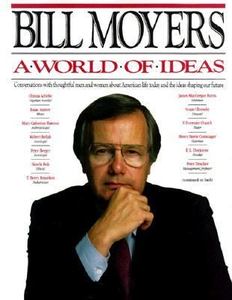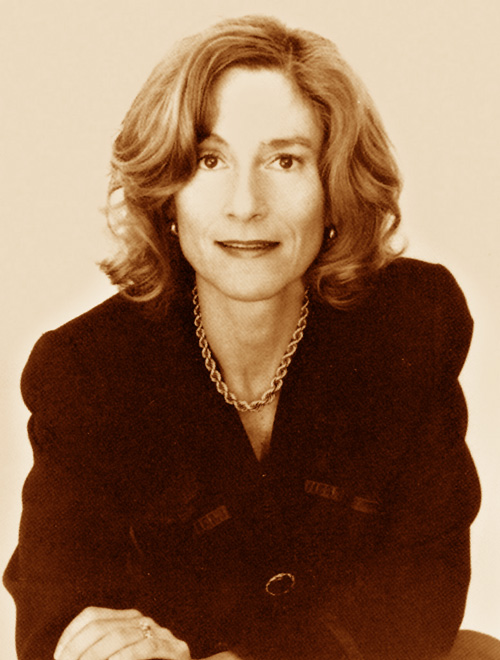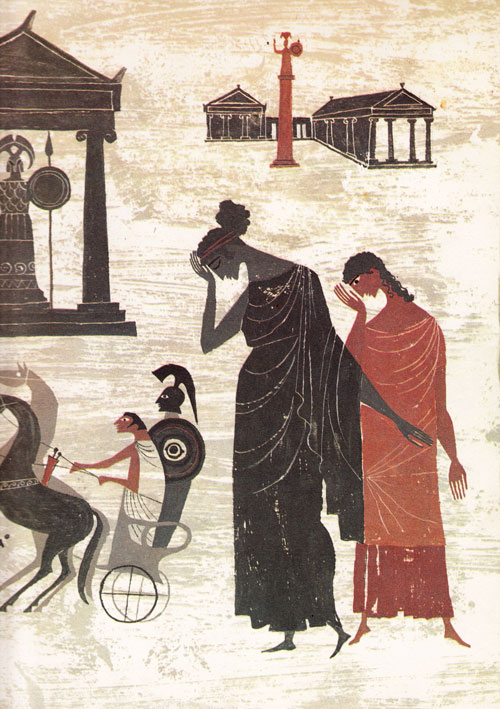by Maria Popova
“To be a good human being is to have a kind of
openness to the world, an ability to trust uncertain things beyond your
own control.”

In 1988,
Bill Moyers
produced a series of intelligent, inspiring, provocative conversations
with a diverse set of cultural icons, ranging from Isaac Asimov to Noam
Chomsky to Chinua Achebe. It was unlike any public discourse to have
ever graced the national television airwaves before. The following year,
the interviews were transcribed and collected in the magnificent tome
Bill Moyers: A World of Ideas (
public library).
But for all its evenness of brilliance, one conversation in the series
stands out for its depth, dimension, intensity, and timelessness — that
with philosopher
Martha Nussbaum,
one of the most remarkable and luminous minds of our time, who sat down
to talk with Moyers shortly after the publication of enormously
stimulating book
The Fragility of Goodness: Luck and Ethics in Greek Tragedy and Philosophy.

Martha Nussbaum
Moyers begins by framing Nussbaum’s singular approach to philosophy and, by extension, to the art of living:
MOYERS: The common perception of a philosopher is of a
thinker of abstract thoughts. But stories and myths seem to be important
to you as a philosopher.
NUSSBAUM: Very important, because I think that the language of
philosophy has to come back from the abstract heights on which it so
often lives to the richness of everyday discourse and humanity. It has
to listen to the ways that people talk about themselves and what matters
to them. One very good way to do this is to listen to stories.
Reflecting on the timeless wisdom of the Greek myths and tragedies, particularly Euripides’s
Hecuba, Nussbaum considers the essence of good personhood, which necessitates
accepting the basic insecurity of existence and
embracing uncertainty. She tells Moyers:
To be a good human being is to have a kind of openness to
the world, an ability to trust uncertain things beyond your own
control, that can lead you to be shattered in very extreme circumstances
for which you were not to blame. That says something very important
about the human condition of the ethical life: that it is based on a
trust in the uncertain and on a willingness to be exposed; it’s based on
being more like a plant than like a jewel, something rather fragile,
but whose very particular beauty is inseparable from its fragility.
The paradox of the human condition, Nussbaum reminds us, is that while our
capacity for vulnerability — and, by extension,
our ability to trust others
— may be what allows for tragedy to befall us, the greatest tragedy of
all is the attempt to guard against hurt by petrifying that essential
softness of the soul, for that denies our basic humanity:
Being a human means accepting promises from other people
and trusting that other people will be good to you. When that is too
much to bear, it is always possible to retreat into the thought, “I’ll
live for my own comfort, for my own revenge, for my own anger, and I
just won’t be a member of society anymore.” That really means, “I won’t
be a human being anymore.”
You see people doing that today where they feel that society has let
them down, and they can’t ask anything of it, and they can’t put their
hopes on anything outside themselves. You see them actually retreating
to a life in which they think only of their own satisfaction, and maybe
the satisfaction of their revenge against society. But the life that no
longer trusts another human being and no longer forms ties to the
political community is not a human life any longer.

Illustration by Alice and Martin Provensen from 'The Iliad and the Odyssey: A Giant Golden Book.' Click image for details.
Things get significantly more complicated, however, when we find
ourselves in binds that seem to call for tragedy by asking us to make
impossible choices between multiple things we hold dear. Nussbaum
illustrates this by pointing to Aeschylus’s
Agamemnon,
in which the king-protagonist has to choose between saving his army and
saving his daughter. The same tragedy plays out on a smaller scale in
everyday dilemmas, such as juggling your career with being a good
parent. Most of the time, as Nussbaum puts it, the two “enrich each
other and make the life of each of them better.” But sometimes,
practical circumstances pose such insurmountable challenges like an
important meeting and your child’s school play happening at the same
time — one of these two priorities inevitably suffers, not because you
are a bad parent or a bad leader, but because life just happens that
way. Therein lies the human predicament — the more we aspire to live
well, according to our commitments and priorities, the more we welcome
such tragic choices. And yet the solution isn’t not to aspire. Nussbaum
tells Moyers:
Tragedy happens only when you are trying to live
well, because for a heedless person who doesn’t have deep commitments
to others, Agamemnon’s conflict isn’t a tragedy…
Now the lesson certainly is not to try to maximize conflict or to
romanticize struggle and suffering, but it’s rather that you should care
about things in a way that makes it a possibility that tragedy will
happen to you. If you hold your commitments lightly, in such a way that
you can always divest yourself from one or the other of them if they
conflict, then it doesn’t hurt you when things go badly. But you want
people to live their lives with a deep seriousness of commitment: not to
adjust their desires to the way the world actually goes, but rather to
try to wrest from the world the good life that they desire. And
sometimes that does lead them into tragedy.
Perhaps Alan Watts was right when he advised not to fight the world’s contradictions but to conceive of the universe as
“a harmonious system of contained conflicts.”
Bill Moyers: A World of Ideas
is a treasure trove in its entirety, featuring many more conversations
with luminaries spanning art, science, psychology, literature, the
creative spirit, and just about every aspect of life. Complement this
particular one with
Nussbaum’s advice on living a full life.




